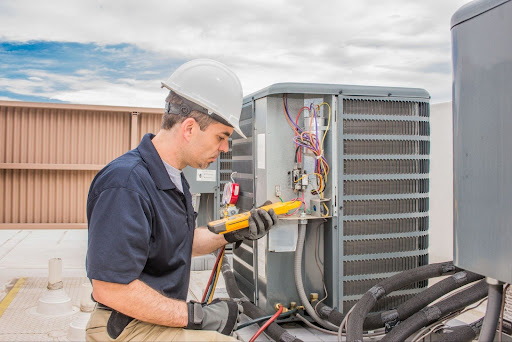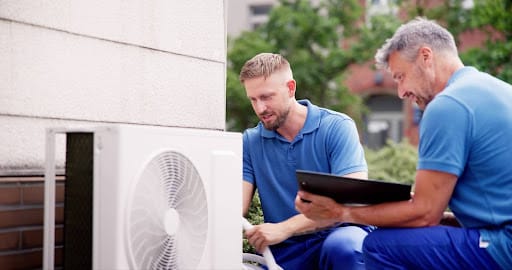
What To Do When Your A/C Making Weird Noises?
Your air conditioner is a crucial part of maintaining comfort in your home, especially during the hot summer months. When it starts making unusual noises, it can be both alarming and frustrating. The type of noise your air conditioner is making can indicate different problems that require specific actions. In this comprehensive guide, we will explore various types of noises your A/C might make and what they mean, along with the steps you can take to address these issues.
Common A/C Noises and Their Meanings
1. Banging or Rattling
Possible Cause: Loose Parts
Description: Banging or rattling sounds often indicate that there are loose parts within the air conditioner. These parts can include fan blades, motor mounts, or compressor components.
What to Do:
- Inspect Visually: If you feel comfortable and have the right tools, turn off the power to your A/C and check for any visibly loose parts.
- Tighten Loose Parts: If you identify any loose components, you can try tightening them carefully. Ensure the power is off to avoid any accidents.
- Call a Professional: If you are unable to find the source of the noise or are unsure about how to fix it, it is best to call a professional HVAC technician. They can thoroughly inspect the unit and secure or replace any loose parts as needed.
2. Buzzing, Vibrating, or Popping
Possible Cause: Electrical Issues
Description: Buzzing, vibrating, or popping noises can be signs of electrical issues within the A/C unit. These issues could be related to the circuit breaker, fan motor, or internal wiring.
What to Do:
- Turn Off the A/C: Immediately turn off your air conditioner to prevent any potential electrical hazards.
- Check Circuit Breaker: Look at your circuit breaker panel to see if any breakers have tripped. Resetting a tripped breaker might solve the problem temporarily.
- Call a Professional: Electrical problems can be dangerous and should be handled by a qualified HVAC technician. They can diagnose the issue, check the wiring and components, and make necessary repairs safely.
3. Hissing
Possible Cause: Refrigerant Leak
Description: A hissing noise often indicates a refrigerant leak. Refrigerant is vital for the cooling process, and a leak can severely impact your A/C’s performance.
What to Do:
- Turn Off the A/C: To prevent further damage to the system, turn off the air conditioner.
- Call a Professional Immediately: Refrigerant leaks can be harmful to the environment and your health. An HVAC professional will locate the leak, repair it, and recharge the refrigerant to the correct levels.
4. Cracking or Popping
Possible Cause: Icing on the Coils
Description: Cracking or popping noises might mean that your air conditioner is icing up, which can happen when there is restricted airflow or low refrigerant levels.
What to Do:
- Turn Off the A/C: Switch off the unit to allow the ice to melt.
- Set Thermostat Warmer: Set your thermostat to a warmer temperature and let the system defrost.
- Check Air Filters: Ensure your air filters are clean and replace them if necessary to improve airflow.
- Call a Professional: If the problem persists, an HVAC technician can check for deeper issues such as refrigerant levels or blockages in the system.
5. Other Noises
Possible Cause: Various Issues
Description: Air conditioners can make a variety of other noises, each indicating different issues. Here are some examples:
- Grinding or Screeching: These noises often signal a problem with the compressor or condenser fan. They might be due to worn-out bearings or other mechanical failures.
- Whistling: A whistling noise can indicate a ductwork issue, such as a leak or a blockage.
- Gurgling or Bubbling: These sounds typically mean there is a clogged air conditioner drain line, which can cause water to back up and affect the system.
What to Do:
- Grinding or Screeching: Turn off the A/C and call a professional immediately. Running the unit with these noises can cause further damage.
- Whistling: Check your ductwork for visible leaks or obstructions. Sealing duct leaks can often be done with duct tape or mastic sealant, but major issues will require professional assistance.
- Gurgling or Bubbling: Turn off the unit and check the drain line for blockages. You can attempt to clear minor clogs with a wet/dry vacuum, but persistent issues should be addressed by an HVAC technician.
Preventative Maintenance Tips
To avoid these issues and keep your air conditioner running smoothly, regular maintenance is key. Here are some tips to help maintain your A/C unit:
1. Schedule Annual Professional Maintenance
Having a professional HVAC technician inspect and service your air conditioner annually can catch potential problems early and keep your system running efficiently.
2. Replace Air Filters Regularly
Dirty air filters can restrict airflow, causing the system to work harder and potentially leading to issues such as icing on the coils. Replace your air filters every 1-3 months, depending on usage and the type of filter.
3. Keep the Outdoor Unit Clean
Ensure the area around your outdoor condenser unit is clear of debris, plants, and other obstructions. Clean the coils and fins periodically to maintain optimal airflow.
4. Check and Clean the Drain Line
Regularly inspect and clean the drain line to prevent clogs that can lead to water damage and reduced efficiency.
5. Monitor Thermostat Settings
Keep an eye on your thermostat settings and ensure it is functioning correctly. Consider upgrading to a programmable or smart thermostat for better control and efficiency.
When to Call a Professional
While some minor maintenance tasks can be done by homeowners, certain situations require the expertise of a professional HVAC technician. Here are some scenarios where you should definitely call for professional help:
1. Persistent Noises
If your air conditioner continues to make unusual noises despite your efforts to address them, it’s time to call a professional. Persistent noises often indicate underlying issues that need expert attention.
2. Reduced Cooling Efficiency
If your A/C is struggling to cool your home effectively, there could be multiple issues at play, such as low refrigerant levels, dirty coils, or a failing compressor. A professional can diagnose and fix these problems.
3. Frequent Cycling
If your air conditioner is frequently turning on and off (short-cycling), it can indicate issues like an oversized unit, thermostat problems, or electrical issues. This not only reduces efficiency but also wears out the system faster.
4. High Energy Bills
Unusually high energy bills can be a sign that your air conditioner is not operating efficiently. Professional maintenance can help improve efficiency and reduce energy costs.
5. Water Leaks
If you notice water pooling around your indoor unit, it’s a sign of a clogged drain line or other issues. Ignoring water leaks can lead to significant water damage and mold growth.
The Importance of Addressing Weird A/C Noises and Seeking Professional Help
Weird noises from your air conditioner are not only annoying but can also indicate serious problems that need addressing. By understanding what different noises mean and taking appropriate actions, you can prevent minor issues from becoming major repairs. Regular maintenance and prompt professional help are crucial in keeping your A/C unit running efficiently and prolonging its lifespan.
At Natal Air Conditioning, our experienced technicians are ready to help you with all your air conditioning needs. Whether it’s diagnosing strange noises, performing routine maintenance, or repairing complex issues, we are just a call away. Contact us today to schedule an appointment and ensure your home stays comfortable and cool throughout the year.











